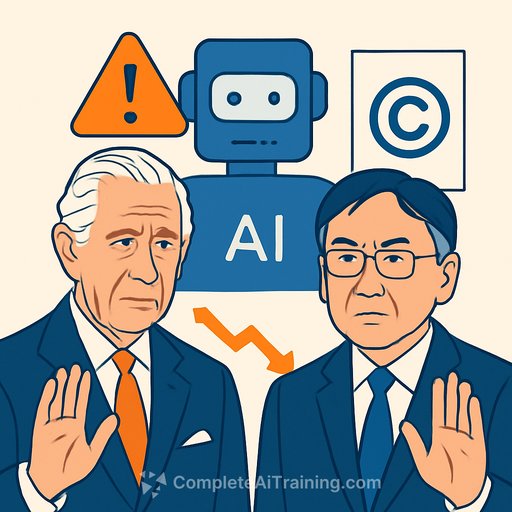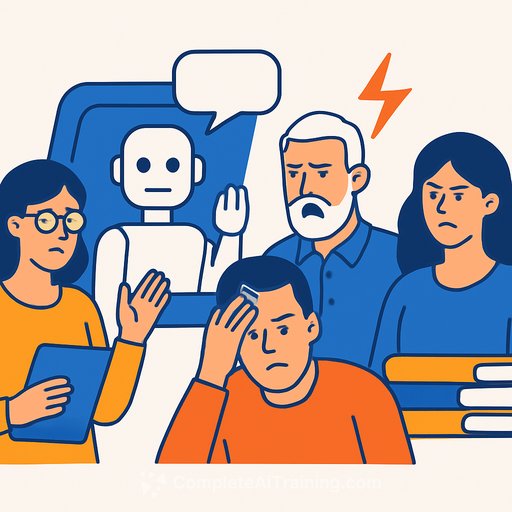Sir Kazuo Ishiguro and the King talk AI: what working writers should do next
At Windsor Castle, Sir Kazuo Ishiguro was made a Companion of Honour - and the conversation turned to AI. The King raised the threat AI could pose to creatives and urged that it's "important to keep battling on that front."
For writers who earn from original work, that line matters. It signals awareness at the highest level that our rights and livelihoods are on the line.
Where Ishiguro stands on AI training data
Sir Kazuo's stance is measured. He doesn't object to AI learning from creative work in principle - the issue is consent, licensing, and copyright.
He called out wholesale scraping: "Just because it's AI, it shouldn't be an excuse to just raid people's intellectual property." He added that all his books have been used to train systems, and argued for a framework that respects copyright, similar to how a researcher cites and licenses sources.
He's also "quite optimistic" about AI's benefits if society sets guardrails so it actually helps people. That's the balance: protect rights, use tools wisely.
Why this matters if writing pays your bills
Unlicensed training can devalue original work and muddy attribution. Contracts and platform terms may allow uses you didn't intend. And some models can imitate voice and style well enough to confuse clients and readers.
You don't need panic. You do need a plan.
Practical steps for writers
- Clarify your rights: Add clear copyright notices and licensing terms on your site, portfolio, and repos. Review publisher and client contracts for AI training clauses; demand opt-outs or compensation where appropriate. Helpful overview: UK copyright basics.
- Control data exposure: Avoid pasting unpublished manuscripts or client-sensitive text into public models. If you do use AI, keep it for brainstorming, outlines, or editing - not raw pages you plan to sell.
- Limit scraping where possible: Use robots and AI-specific crawler blocks on your site. Several AI companies honor published bot rules; it's not perfect, but it's a start.
- License on your terms: If you're open to AI training use, offer paid, permissioned licenses. Put that in writing and price it.
- Protect your voice: Track how your name and distinctive phrases appear online. Set alerts. If a platform markets "style cloning," ask for takedowns or attribution/compensation.
- Upgrade your workflow: Use AI to speed research, structure drafts, or punch up copy - while keeping your voice and judgment in control. If you're new to prompt craft and tool stacks, explore practical resources for writers: AI tools for copywriting.
A milestone for a writer who keeps raising the bar
Sir Kazuo is known for The Remains of the Day and Never Let Me Go. The former became the 1993 film starring Sir Anthony Hopkins and Dame Emma Thompson, earning eight Oscar nominations.
He also wrote the Oscar-nominated screenplay for Living (2022), about a civil servant who decides to live fully after a terminal diagnosis. Receiving the honour was, in his words, "wonderful," and his first time inside Windsor Castle - "overwhelming" and "very beautiful."
The takeaway for writers
Hold two truths at once: defend your rights, and stay curious about tools that can help your craft and business. Or, as the King put it, keep battling - with a cool head and a clear strategy.
Your membership also unlocks:






